From Agroecology to Lemur Measurements: A Holistic Approach to Conservation in Madagascar
August 14, 2022
The multidisciplinary research and conservation team Biocultural Sustainability in Madagascar has been hard at work in the SAVA region. With a team of over 40 researchers, team members have been conducting interviews in local communities and studying lemurs and forest ecology in the COMATSA-Sud protected area. Upon arrival in the region, the team split into two subgroups, with one group camping in the forest reserve for two months and the other living in the local community to experience what Malagasy life is really like. Halfway through their research in Madagascar, the team has shared a few updates.

By James Herrera
So far, our forest ecology team has observed more than 80 encounters of lemurs, including 10 different species. We’ve also been setting live traps to capture nocturnal lemurs for short-term study, including 12 mouse lemurs and 4 hairy-eared dwarf lemurs. The hairy-eared dwarf lemur is extremely rare throughout its range and very little research has been conducted on this species. Our team has been fortunate enough to observe them regularly during nocturnal surveys and we are among the first to have captured them in the wild. After measuring the animals and giving them individually distinguishing marks, we released them into the forest.
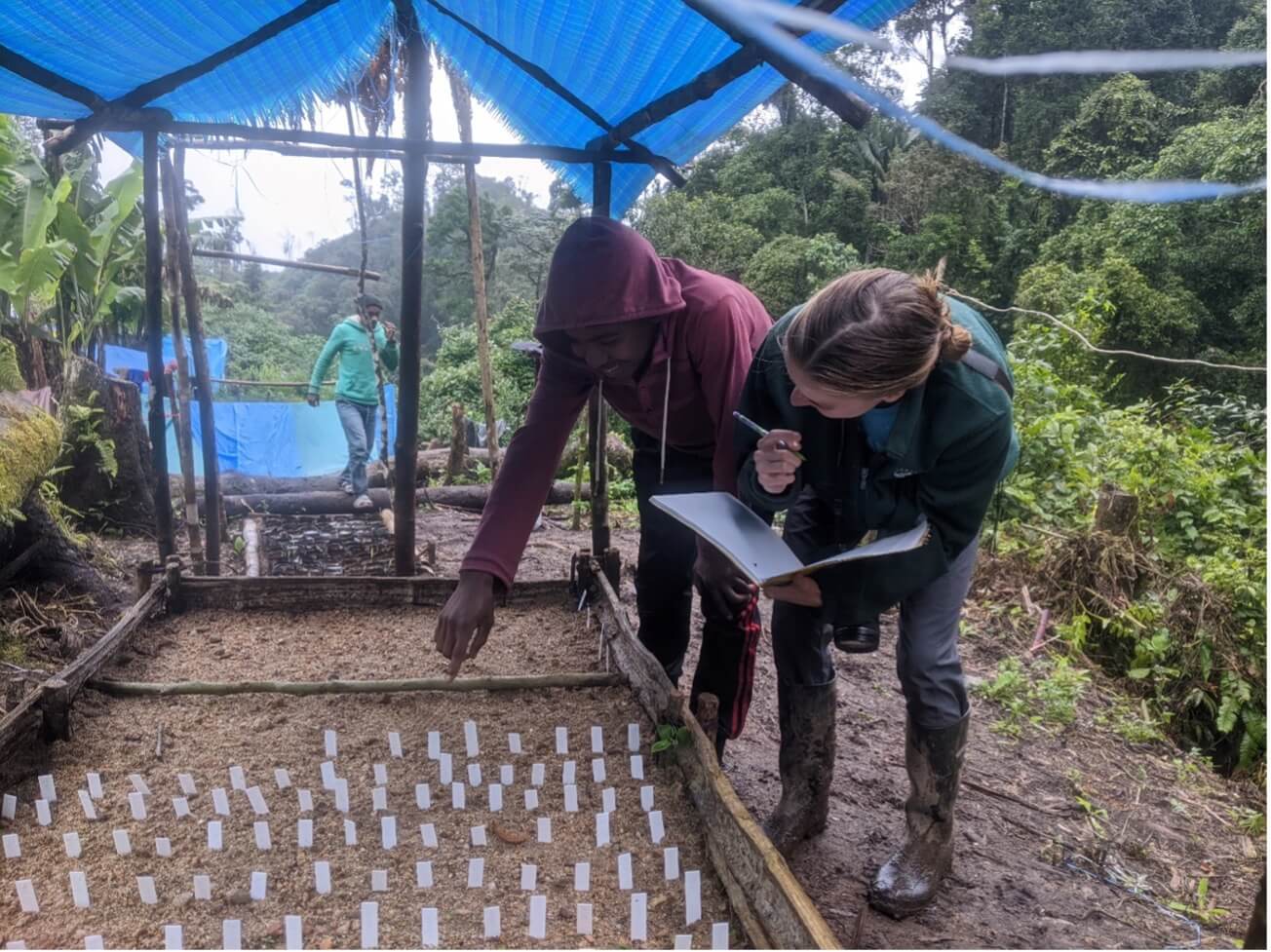
Our team member Camille DeSisto (Ph.D. student in Ecology) is studying how lemurs and trees depend on one another: lemurs feed on diverse tree species, while the trees disburse their seeds with the help of lemurs’ ... feces! Camille is gathering seeds from fecal samples and planting them in a tree nursery in the forest. Ten seedlings have already sprouted from the lemur fecal samples. Camille and the local team from the community will continue to monitor these seedlings, and when they’re mature enough, they will be planted in areas that have faced recent deforestation.
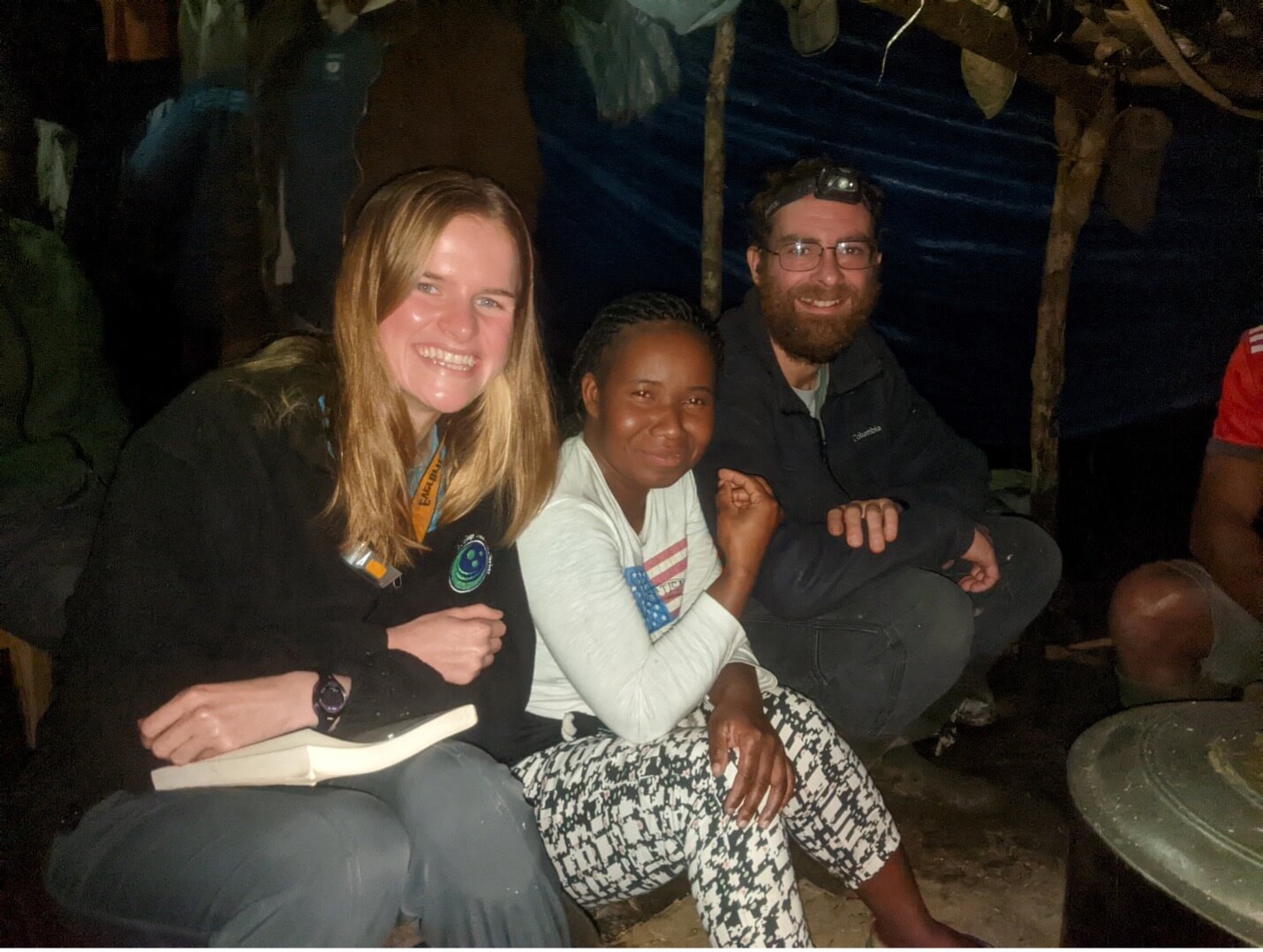
While in the village, our social science team has conducted over 200 interviews to study socioeconomics, farming practices and nutritional health in the region. Maggie Poulos and Bethany Old from the Duke Sanford School of Public Policy are also conducting focus groups and key informant interviews to learn more about microfinance programs, agriculture and the health of mothers and children in Madagascar. Alongside Malagasy researchers Ardhilles and Nestorine, Maggie and Bethany are learning a great deal about the challenges that farmers face, especially concerning food security and nutritional health. We have already found that about 13% of children under five are anemic and require nutritional interventions to improve their health and development.
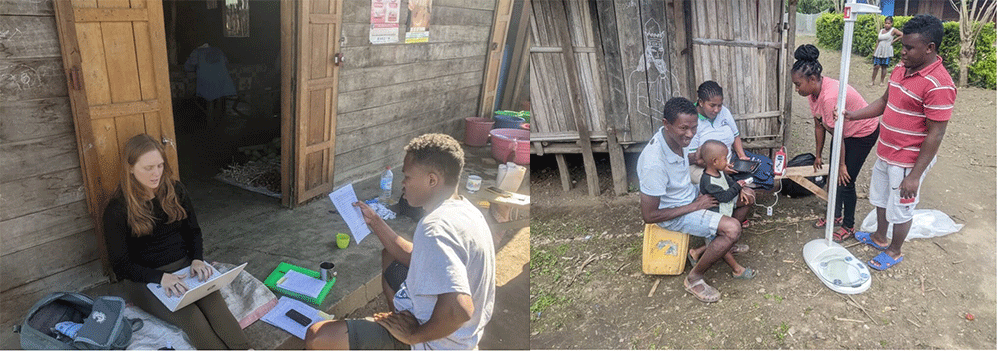
Macalester College student Jane Kesler-Slentz, who is also a part of our Bass Connections team, studies how communities use resources in their surrounding landscape, including in the forest. Using participatory approaches, she asks community members to draw maps of the landscape and identify areas of use, why they use them and where illegal activities are occurring in the protected area.

Dr JJ Strouse of the Duke School of Medicine also visited our research project and has become a key partner in our study and planned interventions. He was able to observe the setting first-hand and gave excellent feedback on the diverse aspects of our project. Together, we met with local doctors to better understand the local healthcare infrastructure and the obstacles we need to overcome to improve nutritional health in the region. This was a crucial visit, for Dr JJ Strouse is now partnering up with the DLC-SAVA Conservation project to craft grant proposals for further support.
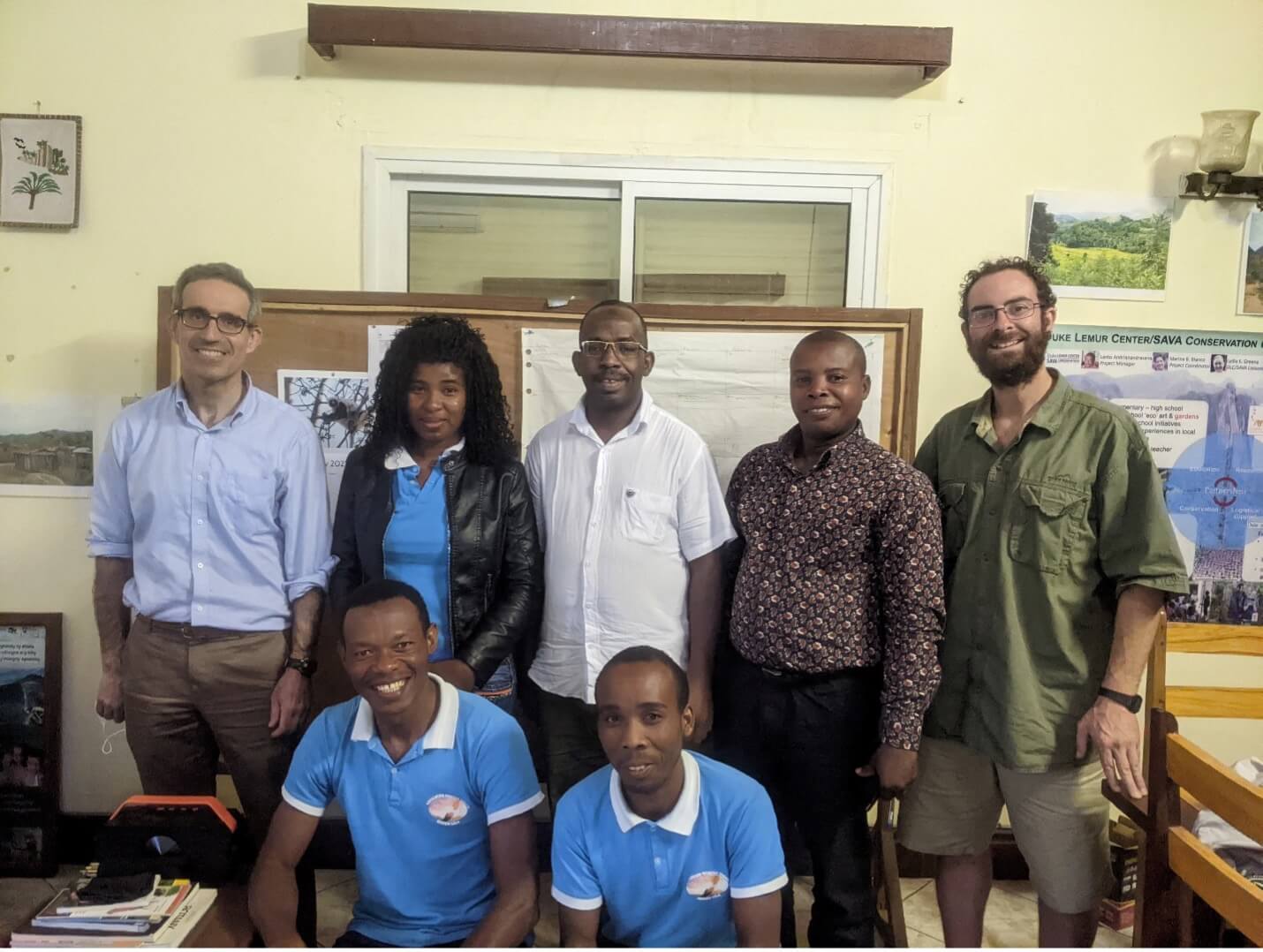
A key activity in our project is to train farmers in agroecology techniques. These practices will allow the farms to produce diverse and nutritious food, while providing enough food for the family and creating a surplus for sale. Our workshops involve hands-on skills development on how to amend the low-quality soils with locally available compost materials. Over 60 farmers have already engaged in our workshop and soon we will be collaborating with the farmers to work together and plant gardens with 12 different participants. These participants will be selected based on their interest and desire to improve the agricultural techniques and productivity in the region.
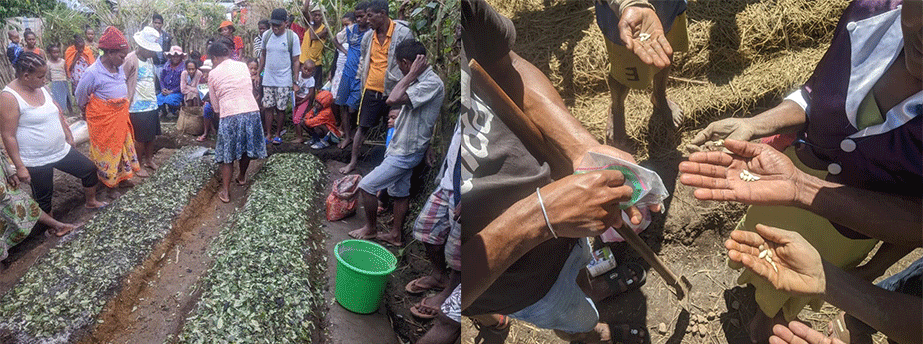
Evrard has also joined our team to educate children and adults in the area on the value of the environment for people’s everyday lives. With this combined research and development project, we hope to improve the community’s ability to produce enough food to eat and sell, while also protecting the forest and all the wildlife and ecosystem services it provides.
In addition to Duke students and partners in the COMATSA-Sud, our Bass Connections project also includes a Ph.D. student Marie Fleming from the University of California-Davis. She is addressing similar social and ecological questions at another DLC-SAVA Conservation site, the village of Andrapengy and the sacred mountain Ambanitaza. Her project includes producing resource maps of the forests and landscapes that surround the village to understand more about the past, the present and the optimal future of the landscape.

Learn More
- This is the second of a three-part series of reflections from the Biocultural Sustainability in Madagascar project team. Read part one about their first few weeks in Madagascar and part three about their study of local livelihoods in the region.
- Submit a proposal for a 2023-2024 Bass Connections project by November 7.
- Explore the Energy & Environment theme to find more project teams that work in conservation and biodiversity.
